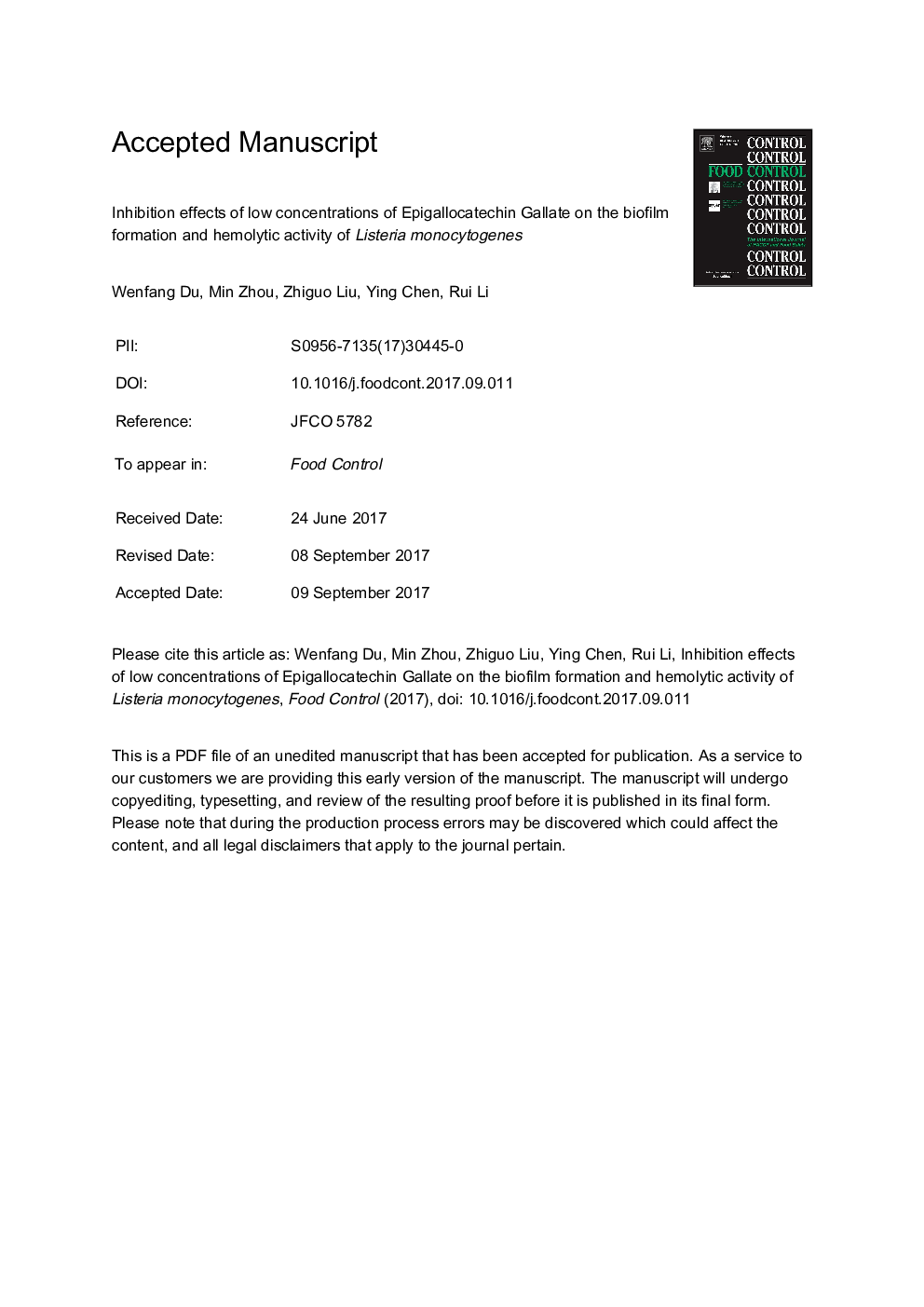| Article ID | Journal | Published Year | Pages | File Type |
|---|---|---|---|---|
| 8888196 | Food Control | 2018 | 27 Pages |
Abstract
Listeria monocytogenes (L. monocytogenes) is a well-known food-borne pathogen that causes systemic listeriosis. Its biofilm-forming ability is known to be important for its antimicrobial resistance and persistence. Epigallocatechin-gallate (EGCG) is the highest component of tea polyphenols in tea extracts and has broad-spectrum antimicrobial activities. In this study, the efficacys of EGCG to inhibit biofilm formation and hemolytic activity of L. monocytogenes were determined. EGCG at 20 μg/mL, 40 μg/mL (less than compound's minimum inhibitory concentration, MIC) and 200 μg/mL (1 MIC) were tested. Crystal violet staining showed that sub-MIC and MIC of EGCG could significantly reduce the biofilm formation by L. monocytogenes on polystyrene microtiter plates at three temperatures (15 °C, 30 °C and 37 °C). EGCG reduced the sessile cell numbers present in biofilm at those temperatures. EGCG also significantly inhibited hemolytic activity of L. monocytogenes as measured by sheep red blood cells. Real time PCR assay was used to investigate the relative gene expression of L. monocytogenes grown at 37 °C and revealed that EGCG down-regulated virulence genes (inlA and hly), SOS response genes (recA and yneA) and quorum sensing gene (agrA). These results suggested the feasibility of using EGCG in food industry to control L. monocytogenes biofilm formation.
Related Topics
Life Sciences
Agricultural and Biological Sciences
Food Science
Authors
Wenfang Du, Min Zhou, Zhiguo Liu, Ying Chen, Rui Li,
